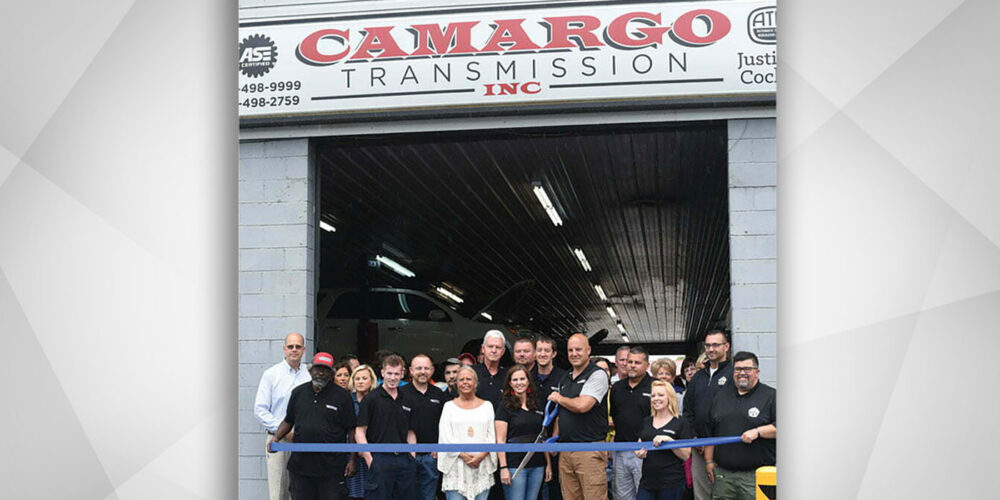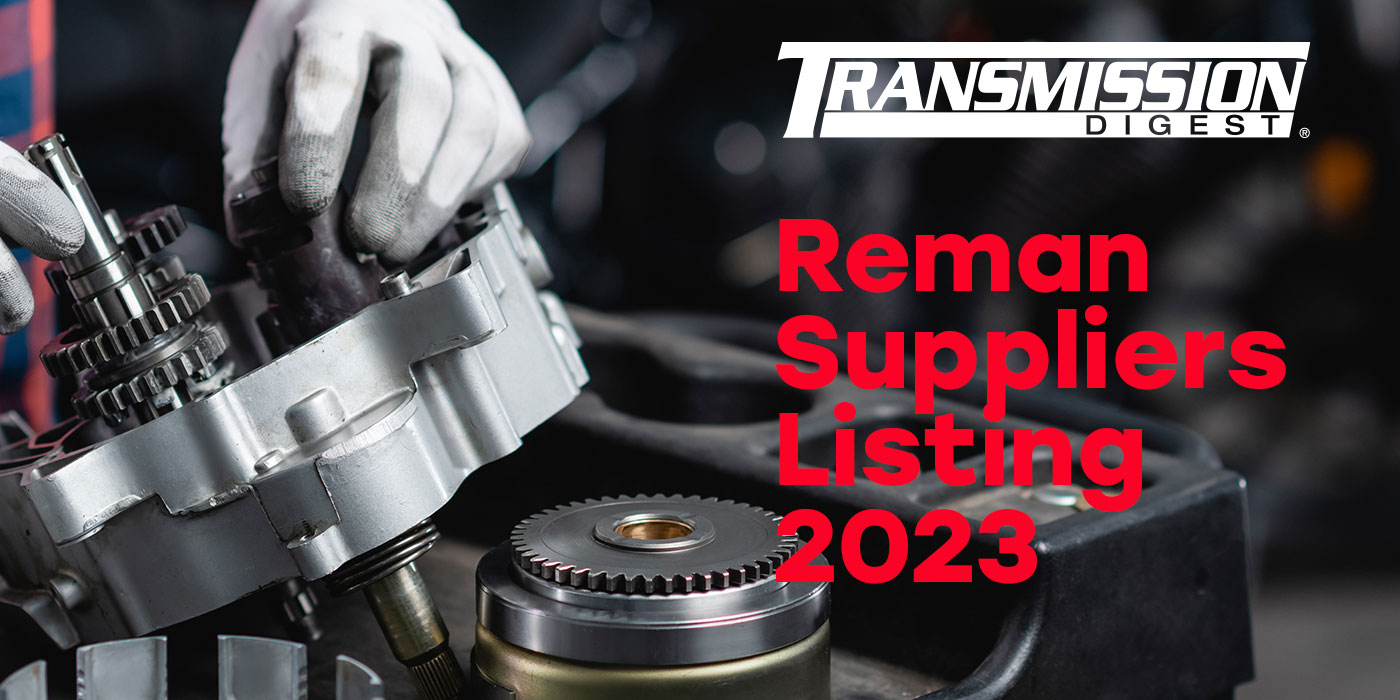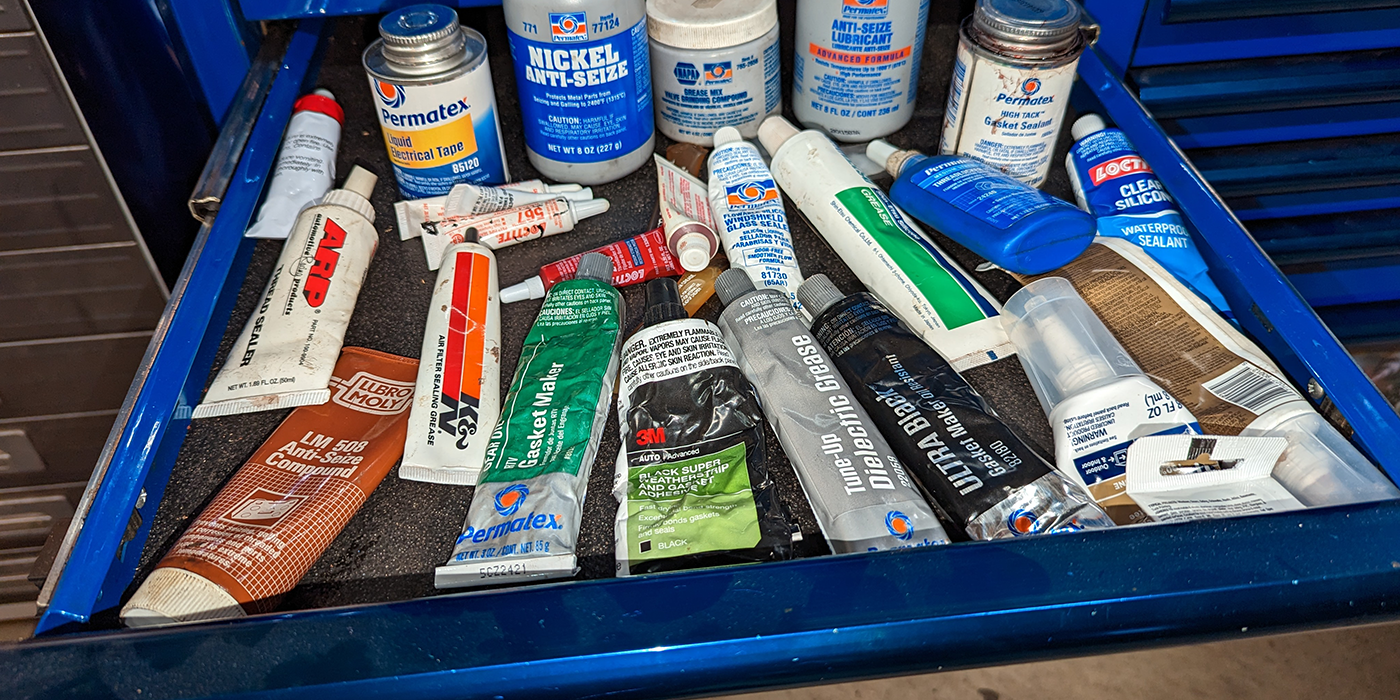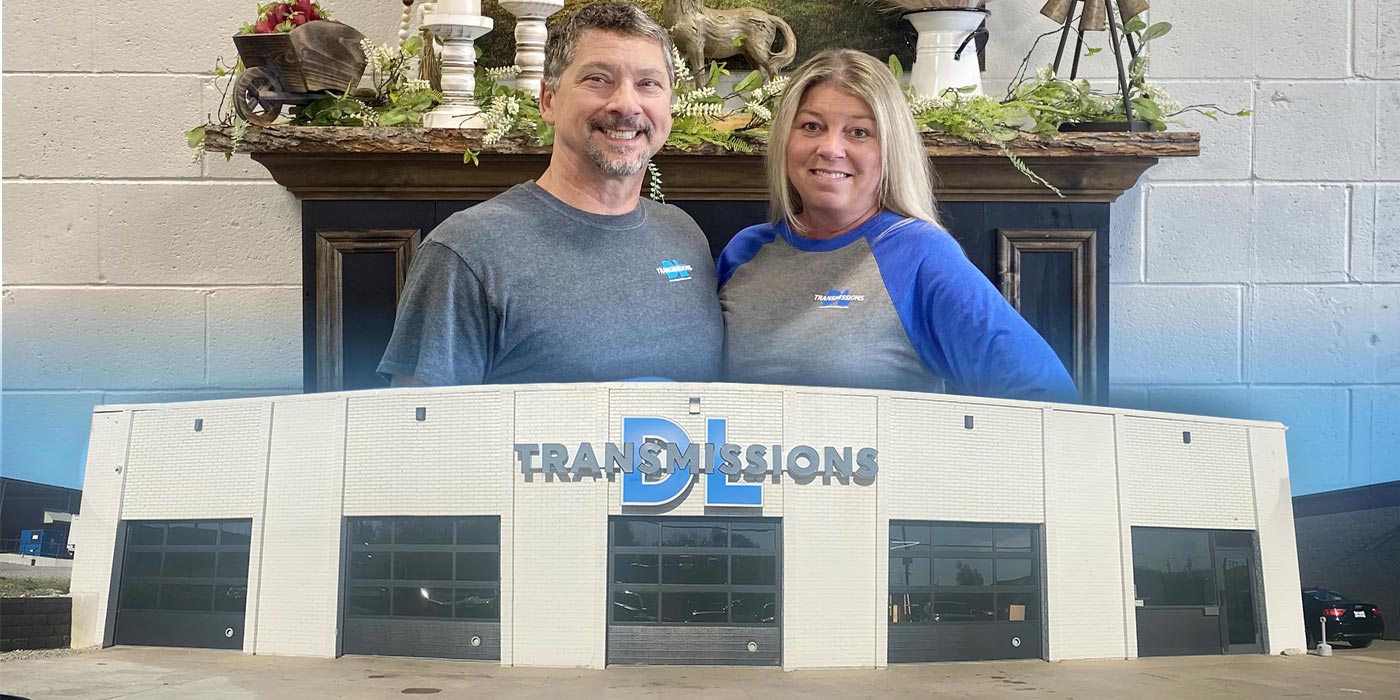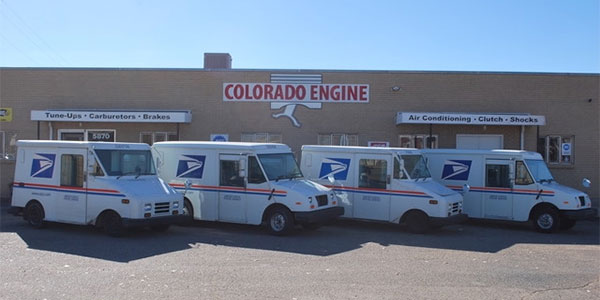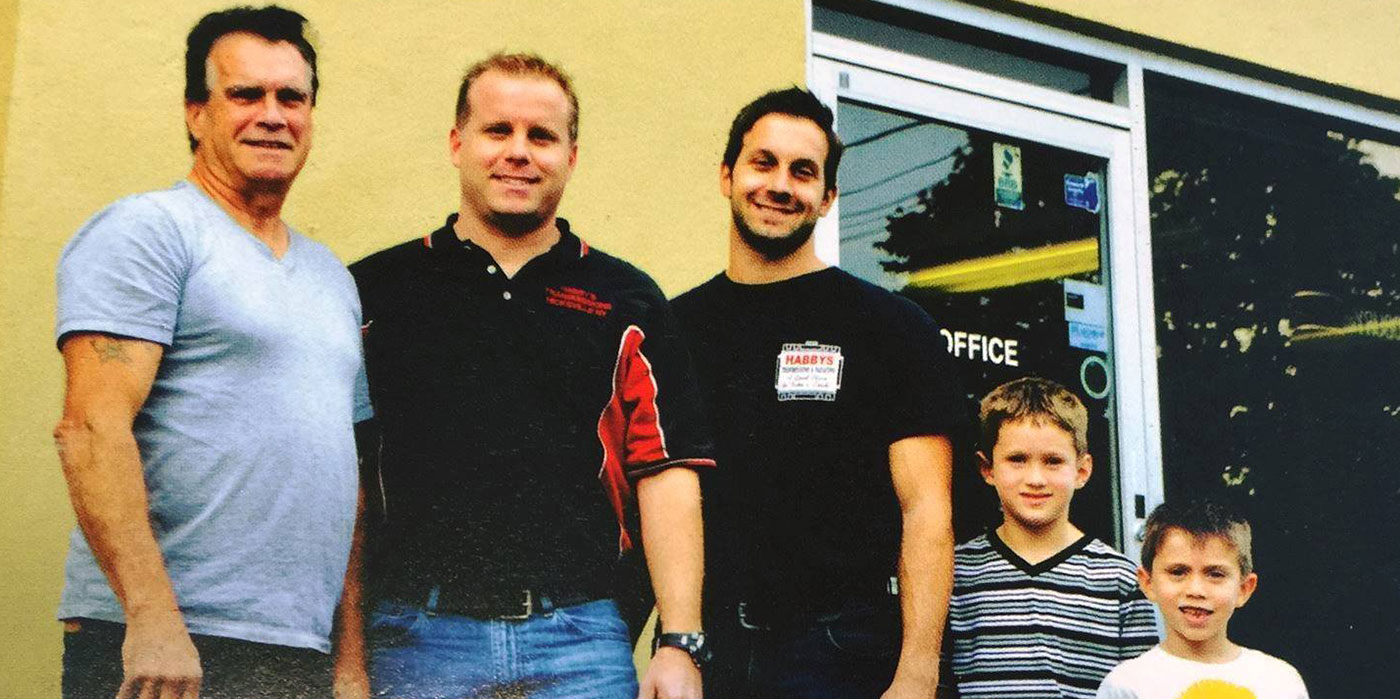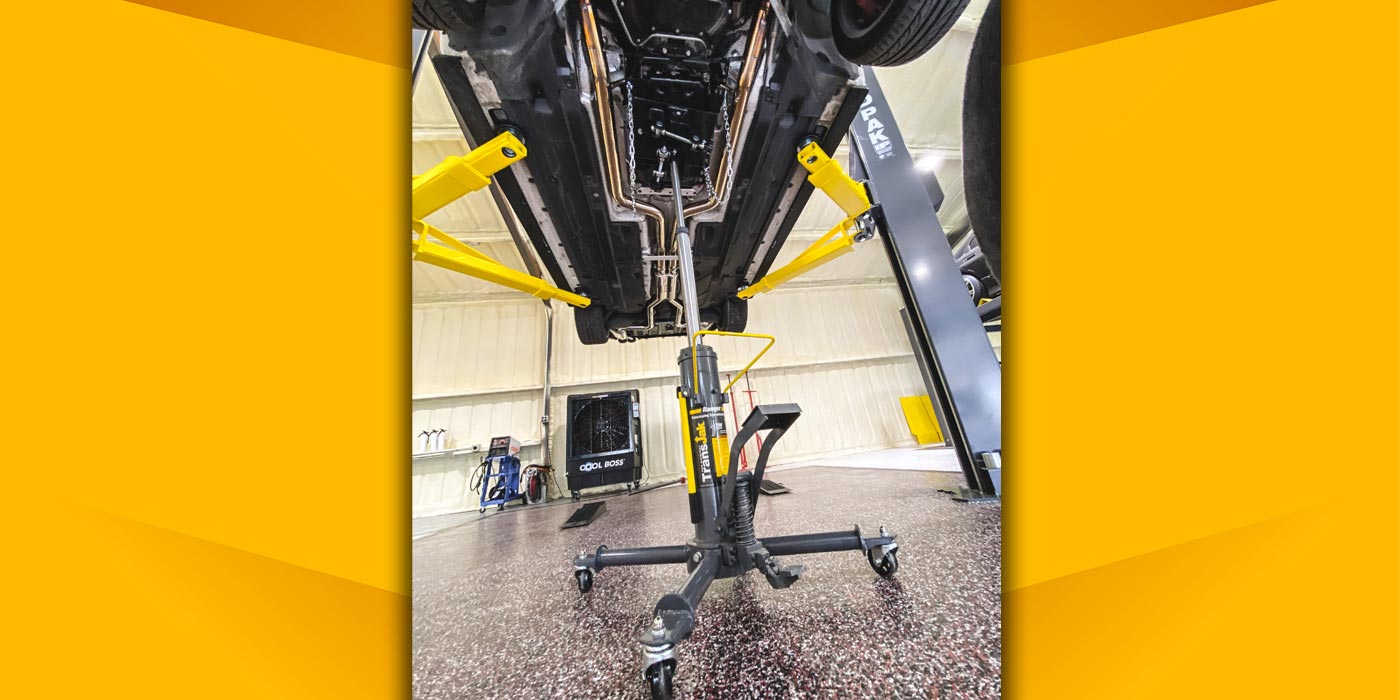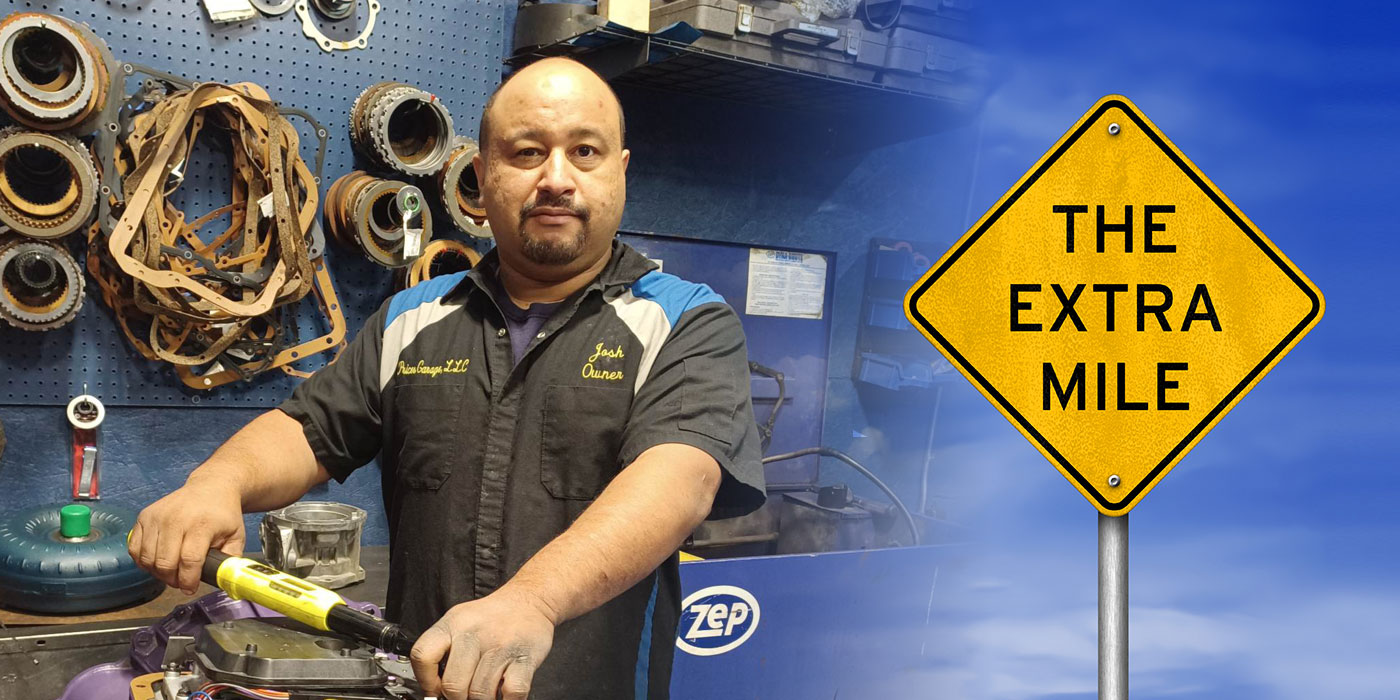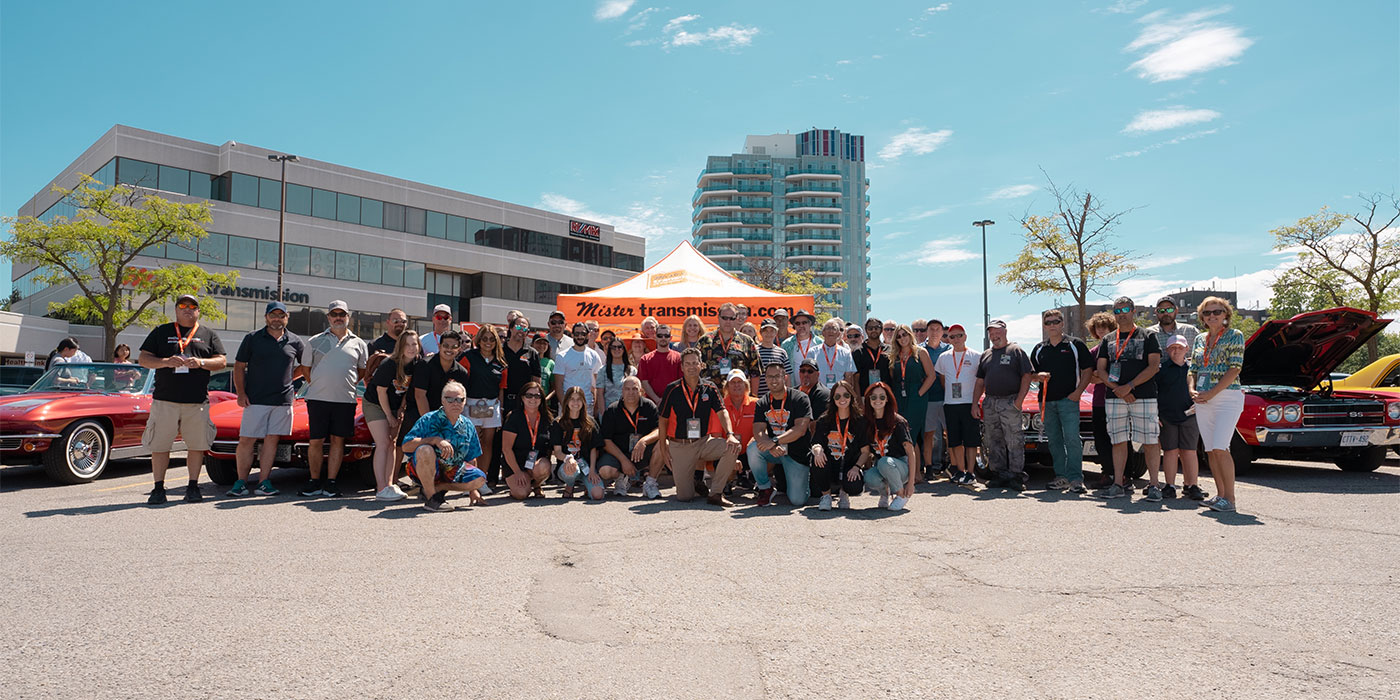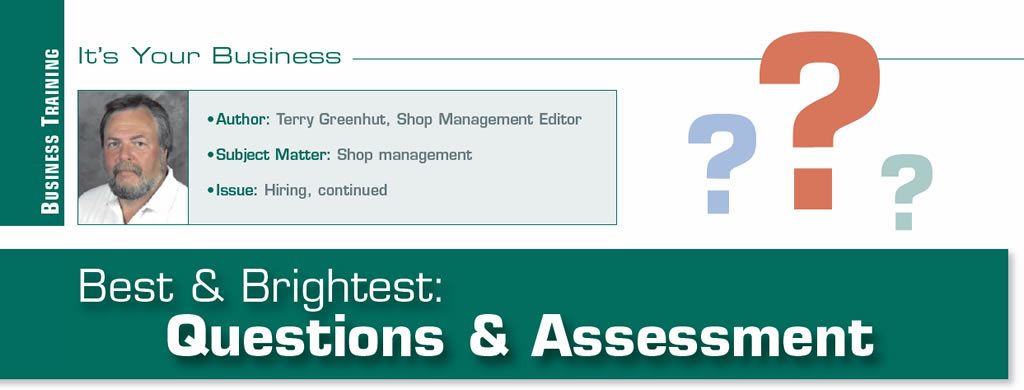
It’s Your Business
- Author: Terry Greenhut
- Subject Matter: Shop management
- Issue: Hiring, continued
10th in a series
In the previous installment we discussed the hiring interview. I mentioned that it would be best to have a set routine and agenda for the interview with questions that will paint a general picture of the prospect for you and more specific questions tuned to the position for which you are hiring.
Caution: There are some questions that might pop into your mind that shouldn’t make it out of your mouth. It would be a good idea for you to make a list of all the questions you might want to ask in a normal interview and run them past a lawyer who has labor-relations experience. After you get his or her opinion, stick to the questions that will give you the information you need without violating anyone’s rights. Unfortunately, we live in a time when some people would work harder at trying to come up with reasons to sue others than they would working at their jobs. Don’t be a victim. Remember that when you are interviewing people for available positions you don’t really know them. They are strangers who have not yet earned your trust, so no matter how nice they seem there could always be a hidden agenda. If all that sounds like paranoia, maybe it is, but I think it’s better to be a little paranoid than the trusting soul who gets burned for a lot of money because he or she did not protect themselves.
Try not to ramble on too much telling stories about yourself or the business. You should only be doing about 10% of the talking. Make sure you are the one asking most of the questions.
You must find out if the applicant is allowed to work in this country and if he or she can prove it. A valid driver’s license with little or no infractions would be important if the prospect is going to move or test drive vehicles for you. In general, if you find a candidate you are really interested in hiring, with their approval, a background check and a drug test wouldn’t be out of the question.

Questions
The questions you ask can be broken down into two basic categories: Those directly related to the job and the work the candidate would be doing and those that would give a good indicator as to the prospect’s personal attitude and character. Here are some questions you might want to ask.
Interest in the company
- 1) What do you know about our company?
- 2) Do you know what products and services we offer?
- 3) How did you hear about this opening?
- 4) What made you apply for this position?
Job related
- 1) What is your greatest accomplishment?
- 2) Tell me about your work history.
- 3) What previous experiences do you feel have prepared you for this position?
- 4) Which of your past positions has given you the most satisfaction?
- 5) Which position was the most frustrating for you?
- 6) Describe one or two of your best accomplishments to date.
- 7) What kinds of supervision have you had in previous jobs?
- 8) Describe your favorite supervisor.
- 9) If you had subordinates what type of supervisory style would you use?
- 10) If you’ve had subordinates in the past how do you think they would describe your strengths and weaknesses?
- 11) What would you say are your strengths and weaknesses?
- 12) What has been your biggest career disappointment?
- 13) What made you choose this career or job?
- 14) Why did you or are you leaving your present position?
- 15) If you worked here what do you think might make you leave us?
- 16) What kinds of personalities and attributes would you like in your co-workers?
- 17) What qualities would you like to see in the company you work for?
- 18) How does this open position fit into you overall career plan?
- 19) What new knowledge or experience do you feel you gained from your last job?
- 20) What did you do that you feel was innovative or new on your last job?
- 21) Why do you feel we should hire you?
Education and training
- 1) What kind of formal training have you had for this position?
- 2) What special certificates or awards have you received?
- 3) What special skills do you bring to this position?
- 4) In school, which courses did you enjoy most?
- 5) Which ones did you not like?
Personal attitude and character
- 1) What do you feel has been your greatest success or experience?
- 2) How much time out of each 24 hours do you devote to: your occupation, sleep, play and relaxation, self-improvement, family, other?
- 3) For you, the most desirable way to deal with most other people is: logical and restrained, deliberate and patient, open and enthusiastic, direct and decisive?
- 4) What are some personal areas in which you would like to improve?
- 5) If we don’t hire you what do you think you will do next?
Disclaimer: I’m not an attorney, so before you use these questions it would probably be in your best interest to find out just how legal they are.

Assessment
After the interview it might be helpful to you to rate the applicant in different categories with a numerical rating from 1 to 10 in each. By writing down the numbers it will be easy to see how they compare with each other and maybe with a predetermined standard you have set. Nobody needs to see the results but you. The categories might be:
- Appearance: Attire appropriate, neat personal grooming, good posture and body language.
- Eloquence: Good language skills, vocabulary, diction, ability to express ideas understandably and completely.
- Listening: Active listening skills, eye contact, patience, and the ability to grasp ideas quickly. Do they interrupt or have nervous habits?
- Ethics: Is their honesty apparent? Do they indicate that they would bend the rules to get what they want? What do they value?
- Team player: Do they share the glory or do they use the word “I” a lot when describing previous successes? How do they talk about their old bosses and co-workers?
- Career orientation: How many jobs has the applicant held and for how long each? Do they talk in terms of helping to find solutions and contributing or do they just want to know what they have to do? What are their long-term goals? What questions do they ask?
- Motivation: What do they talk about? Is it challenges, money, friendships, pride in their work? Do they seem to be persistent and achievement oriented?
- Concept of work: What do they think the job is really all about? Are they looking at the big picture or just focusing on the details in front of them? How much do you think they are stretching their stories or accomplishments and are they grabbing for credit whether or not it is due?
- Past experience: How valuable is their past experience? Are they proud of it or trying to hide it?
Things to remember
You are not going to hire based on only a few factors. It will be on a compilation of everything you’ve seen and heard. Take enough time to interview several people and check out their references. Many employers who would not rush any of the other operations of the business glance over this hiring process like it isn’t important. How wrong they are. It is probably the most important part of running a successful business. After all, without good people what do you have? Don’t just say to yourself, “If it doesn’t work out with this one I’ll just fire him or her and get another.” While you’re doing that it’s costing the company a lot of money. It’s worth the extra time and effort to try to do it right in the first place.
Making the offer: When you are satisfied that an applicant is right for the position you will want to offer the job. There are some questions you should ask, though. Things like:
- Would our work schedule be suitable for you?
- Can you think of any reason why you could not be here on time and ready to work every day?
- For you, what would be the best part of working here?
- Do you foresee any problems with working in our company?
- If we were to make you an offer, what would you expect it to be?
- What if anything would cause you to turn down an offer?
All points being covered, offer the job. Keep in mind, though, that people have to be able to live on the money they make. When making the offer, if you sense from the candidate’s reaction that it isn’t enough to live on, find out what would be. If you can meet it that’s great. If not you should probably pass on this one.
Hiring on a trial basis is always desirable when it can be done, especially when it’s a matter of job skills that a prospect claims to have. Make the trial long enough to find out what they really know and can do. Give them as many different types of tasks as you can during that period to see how many they can actually perform to your satisfaction.
Having done all that, you have a much better chance of finding good employees who will stay with you in the foreseeable future, and that’s about the most any employer can hope for.






